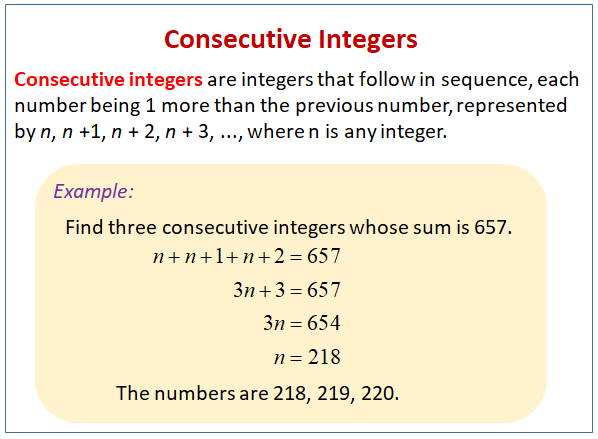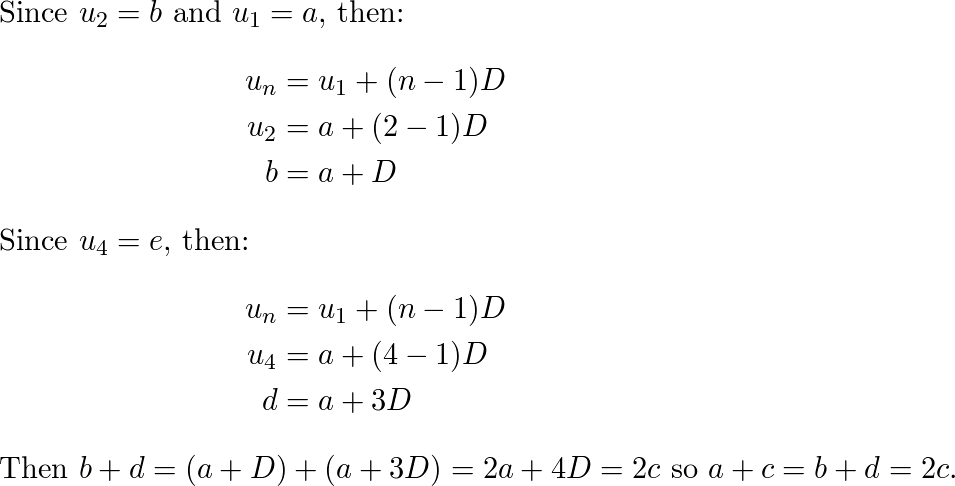
Last Time Arithmetic SequenceArithmetic Series List of numbers with a common difference between consecutive terms Ex. 1, 3, 5, 7, 9 Sum of an arithmetic. - ppt download

MATH 2160 Sequences. Arithmetic Sequences The difference between any two consecutive terms is always the same. Examples: 1, 2, 3, … 1, 3, 5, 7, … 5, 10, - ppt download

find k given the consecutive arithmetic terms| Sequenc| Arithmetic Progression by Maths Magic - YouTube

Recall, in an sequence, the difference between consecutive terms is constant. The constant difference is called the difference and is denoted by d. - ppt download

The coefficient of two consecutive terms in the expansion of (1+x)^n will be equal, n is any integer.

The sum of the first 3 consecutive terms of an increasing AP is `51` and the product of the fi... - YouTube
If 2+x, 3+x and 8+5x are consecutive terms of an arithmetic progressive, what is the value of x? - Quora





















